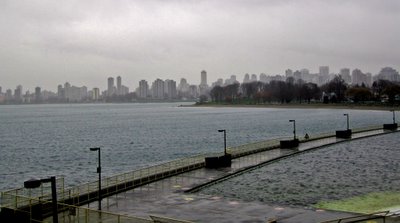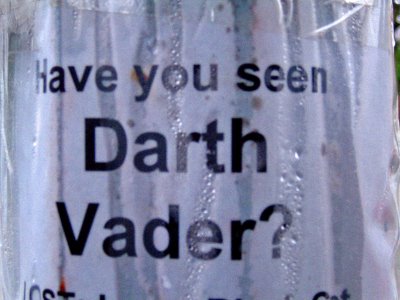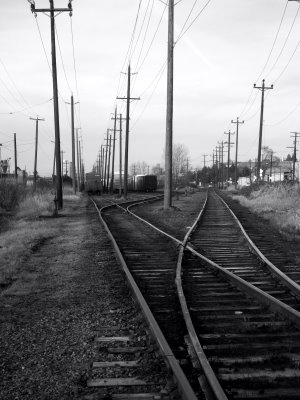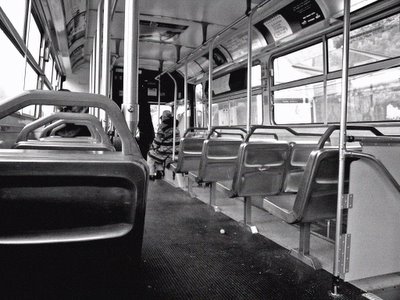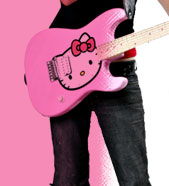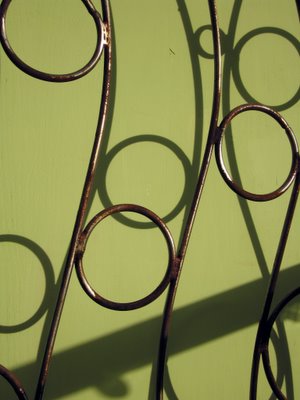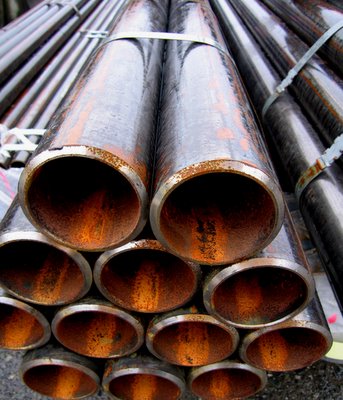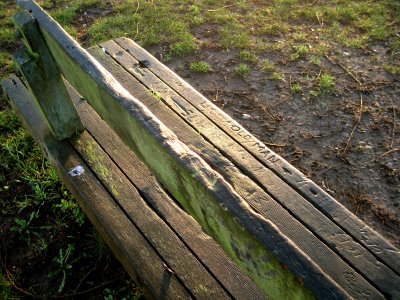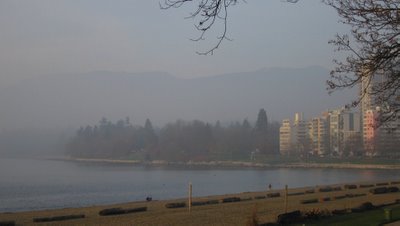Today is the very definition of dreary. Later, a doctor's appointment. For now, rest and relaxation. I just finished watching this week's installment of
24. It got me thinking. This guy said to me, in email, that TV gives him brain cancer. You can take that one of two ways, one, he watches too much and gets stupid if he's watching it at all, or two, that he thinks it's stupid and that watching it is bad for ya.
Either way, I can appreciate that statement. Sure. But TV is just like anything other vice. There's a certain point where it can be advantageous, but to take it past that can border on obsessive, or worse, compulsive. TV's the most popular drug there is, man, and I, for one, drink the Kool-aid.
The thing is, there's some incredible TV out there. You can dismiss all that if you want, but there are some programs that, week in, week out, deliver incredibly well-developed stories that have immaculate character arcs, never mind plots. Sure, a lot of these anti-TV folks sing the praises of fine cinema, but if none of them have ever written, then they can't possibly comprehend how incredible a feat writing
good television truly is.
When it comes to programs like
24, The Wire, and The 4400, for plot-driven series, just from the last few years, the ability to consistently develop an ever-deepening storyline is a rare and fine quality to discover. Few programs have the ability to plausibly deliver complex action and intrigue. Among them,
24 takes it up a notch. It baffles me how great the twists and turns of this series are, and the funny thing is, it's improving as the years pass. Now in, what, it's fifth season, it's arguably, six episodes in, one of the tightest, smartest action series I've ever seen.
I have maybe five or six dramas I watch each week. The storylines keep me thinking as a writer, and I absolutely love good dialogue. For me, dialogue is the glue that keeps my writing together. I write no fiction, nor do I write screenplays. Language, though, should be owned by the people, the players, not the academics. I tire of all the opinion writers out in the world who seem to have a disconnection with the people. It's the ones with real language I love. They're the ones you can see having it transistion from being a conversation on the page to a debate in a pub, and they're the ones who get what the public's thinking, who know the pulse of their peoples.
If I read one writer too long, it overtakes my writing style. I subconsciously slip into that. It's why I reserve reading for the great shit. Too much of it robs whatever it is that makes me the writer I am. We each have a style, a feel, something we wear better than anything else. For some, it's their cadence. Others, it's their language. For me, it's my conversational feel. It's where I feel strongest. I can do okay stuff in other styles, but it always feels a little off, like wearing heels a tad too high. Maybe it looks good, but damn, it feels wrong.
But it sucks, liking television. When it comes to all the smarty-pant intellectual art crowd, I feel like I need to defend it. It's like there's this moral superiority in trashing television. It's art for the masses, they say. It's art created for commerce, for consumption, not for personal need, they argue. And yes, they're very much right.
How, though, is the sense of accomplishment a team of writers feels after creating a series with five years of 24 one-hour long dramas any less than a guy who was inspired for a mere moment and created a single painting?
It's so arrogant to dismiss something merely because the masses like it. It's like saying The Joshua Tree is less of an album because an entire generation of 16-year-old guys lost their virginity to "With or Without You."
Good is good, regardless of who the fuck it's made for. To dismiss anything because the public as a whole sees it as quality is as arrogant as it gets. I do it sometimes, though, but I think we all do. It's still not a case to argue that Britney Spears is any good, and yes, it's a little daunting to think the people who make Nicole Simpson a household name are the ones wishing Jack Bauer (who's Canadian, by the way) could be president instead of the twit who currently is, but I disgress.
Art has always been commissioned. The Mona Lisa? Paid for by the consumer. The Sistine Chapel? Not only commissioned, but essentially forced. The Greek Tragedies? Created for an audience.
The nature of the commissions have changed, and yes, there is a lowest common denominator out there, but there are exceptions. You just gotta know where the "off" switch is, is all.
More photos from yesterday. Like I said, today, back to the dreary eye-straining dullness we've had for the last seven weeks.
This is the entry to Stanley Park, on the left, and the foot of the downtown core, on the right. It's just blocks from Denman and Robson streets, a couple very happening places -- one leading to the shopping heart of the city, and the other to Van's West End, where a large amount of the population is gay, young, artsy, or hipster immigrant.

This is the Lion's Gate Bridge. On the other side was where that innovative filmmaker, Lion's Gate Films was formed. The North Shore mountains range between about 3,500-5,500 feet in height. Behind me is Stanley Park, and on the other side of that, downtown Van. This is the highest bridge, I think, in the downtown Vancouver area.

I love the shadows you get in the winter. In the summer, all the trees have leaves and it's just different. I love the lines you get. Lines rock.

Another shot of the North Shore, but with Stanley Park on the foreground, taken from Coal Harbour, the formerly industrial, but now ritzy section of shore on the north side of downtown.

